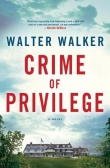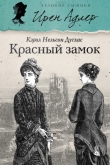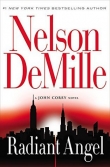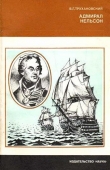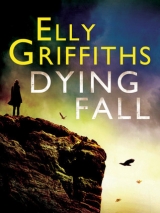
Текст книги "Dying Fall"
Автор книги: Elly Griffiths
Соавторы: Elly Griffiths
Жанр:
Триллеры
сообщить о нарушении
Текущая страница: 2 (всего у книги 20 страниц)
It’s not the first time recently that he has been hit by a wave of nostalgia. When, in May, Blackpool was promoted to the Premier League he had surprised himself by being close to tears as he watched the final match against Cardiff at Wembley. He had wanted to be there, in that joyous tangerine crowd. He wanted to be part of the victory parade in Blackpool, saluting the heroes who would – incredibly enough – soon be facing Manchester United and Chelsea. He has been a Seasiders fan all his life and has a tattoo (and a chip) on his shoulder to prove it. But as his wife and daughters do not share this enthusiasm he has got out of the way of going to matches, has become, in fact, a typical Southern softy armchair fan. Now, more than anything, he wants to be in Blackpool for the new season, he wants to go to Bloomfield Road and watch his team play. He turns into his drive, dreaming of Ian Holloway lifting the Premier League trophy.
Michelle is out but she has left his supper in the microwave and a tasteful array of holiday brochures on the breakfast bar. Italy, France, Portugal, the Seychelles. Nelson pushes them to one side and gets a beer from the fridge. When Michelle comes home, he is at the computer, taking a virtual ride on the Big Dipper, three empty cans at his side.
‘I know, love,’ he says. ‘Let’s go to Blackpool.’
CHAPTER 3
‘There’s a man in a purple cloak looking for you.’
Ruth isn’t unduly surprised by this news. She looks up at the student peering over the edge of the trench, a nervous-looking American woman called Velma who is always asking questions about health and safety. Velma has already had to be driven to A & E twice, once after scratching herself on a flint (although students have upto-date tetanus jabs) and once after an allergic reaction to ice cream.
‘Where is he?’ asks Ruth, straightening up.
‘Over by trench number one.’
‘OK. Do you want to take over here?’ Ruth has had enough of her trench, which has yielded only three rusty nails and a few flakes of animal bone.
Velma climbs carefully into the hole, holding aloft a hand which is still wrapped in a bandage.
‘I think I saw a snake over there in the grass,’ she says.
‘Grass snake,’ says Ruth breezily. ‘Harmless.’ She knows nothing about snakes. She’ll have to ask Cathbad who, last year, narrowly escaped death from a poisonous adder.
Cathbad, the figure in the purple cloak, is kneeling down to examine a tray full of pottery fragments found earlier in the week. From a distance, he looks like he’s at prayer, an impression heightened by the cloak and the bowed head. Cathbad’s long hair is loose around his shoulders, and as he raises his head at Ruth’s approach he looks somehow ageless, a figure turned to stone. Then his mobile rings.
He gets to his feet. ‘Yes,’ he says. ‘Yes. Thanks for telling me.’ As Ruth gets closer, she gets the feeling that Cathbad is somehow shrinking and growing older before her eyes.
‘Hi Cathbad,’ she says. ‘What brings you here?’
Cathbad looks at her, and for a second she thinks that she can see tears in his eyes.
‘Judy’s had her baby,’ he says.
‘Oh,’ says Ruth. ‘Good.’ She doesn’t know quite what to say as she’s not sure if Cathbad is the father of Judy’s baby and she suspects that Judy herself doesn’t know. What is clear is that Judy’s relationship with Cathbad is over and she intends to bring up the baby with her husband, Darren.
‘Who told you?’ asks Ruth.
‘I’ve got a friend at the hospital.’ That figures. Cathbad has friends everywhere.
‘But I knew anyway,’ he says. ‘My sixth sense told me.’ Ruth is glad to hear Cathbad sounding more like his old self even though she’s distinctly ambivalent about his sixth sense.
‘Of course it did,’ she says. ‘Is it a boy or a girl?’
‘A boy. Seven pounds, two ounces.’
‘Oh,’ says Ruth again. She knows that Cathbad has a daughter from a previous relationship. She knows that he will be wondering whether he now has a son.
‘Of course, children don’t belong to us,’ he says, as he and Ruth walk towards the outer edge of the dig. ‘They belong to the universe.’
Ruth says nothing. She never knows what to reply to pseudo-religious utterances, a fact that probably goes back to her upbringing by devout Born Again Christians. But thinking of Judy and her baby makes her remember the day that she had Kate, with Cathbad as her unexpected birth partner. She squeezes his arm.
‘It’s all part of the great web.’ This is one of Cathbad’s favourite expressions.
He smiles at her. ‘Yes it is. The great web ordained before time began.’
‘Mustn’t mess with the great web.’
‘We must not.’ But he is still smiling.
They stop at the brow of the hill. From here you can just see the sea, a fact that always led Max to believe that this was a vicus, part of a Roman garrison town, on the way to the port at Borough Castle.
‘What happened to the Janus Stone?’ asks Cathbad.
The stone head depicting the two-faced Roman God was found on this site almost two years ago. Thinking of it reminds Ruth of Max, and of someone else who was obsessed with the old, bloodthirsty gods. Obsessed to the point of murder.
‘It’s in the museum,’ she says. ‘I’m sure you don’t approve.’
Ruth and Cathbad first met when Ruth was part of a team excavating a Bronze Age henge on a North Norfolk beach. Cathbad and his fellow druids had protested when the henge’s timbers were removed to a museum. They should be left where they were, they said, part of the landscape, open to the sky and sea. Erik had been in sympathy with them but the henge had been dismantled nonetheless.
‘Oh well,’ he says. ‘It can still work its magic in the museum.’
‘You’re mellowing,’ says Ruth.
‘It happens to us all.’
Cathbad turns to look at Ruth, his dark eyes uncomfortably shrewd.
‘How are you, Ruth? You look a bit shaken.’
Cursing Cathbad’s sixth sense or plain nosiness (not for the first time), Ruth says, ‘A friend died a few days ago. An old friend from university. I hadn’t seen him for years but, yes, it has shaken me.’
‘Maybe his soul is calling to you,’ says Cathbad.
Ruth gives Cathbad a dark look. She feels sorry for him but she’s not going to let him talk like that.
‘I just feel sad,’ she says. ‘That’s all.’
‘That’s enough,’ agrees Cathbad.
They stay looking at the gentle hills as they lead to the sea. High above them a skylark is calling. It’s nearly Midsummer’s Day, a major event in Cathbad’s calendar.
‘I wonder if Nelson knows,’ says Ruth, ‘about Judy.’
‘Ask him,’ says Cathbad.
And Ruth knows, without looking round, that Nelson is behind them.
*
Nelson doesn’t know quite why he has come up to the dig. He could easily have spoken to Ruth on the phone. Besides they’re busy at the station, what with no Judy and Clough tearing round the backstreets in a (metaphorical) red sports car. All he knows is that as soon as he had finished speaking to Sandy he was reaching for his car keys and telling Leah, his PA, that he’ll be out for an hour or two.
‘I think Superintendent Whitcliffe wanted to catch up with you,’ she’d said.
Then want, thought Nelson, taking the stairs two at a time, must be his master. Jesus. Where had that come from? It was something his mother used to say.
And now, striding over the grass towards Ruth and Cathbad, he is glad he came. It is good to be in the open air after days in the station, completing paperwork and assuring Whitcliffe that his team didn’t cut any corners in the drug smuggling case (they did, but Nelson hopes he’s covered up adequately). And it’s good to see Ruth. Over the last few months he has battled to shape his relationship with Ruth into one of benevolent friendship. He is the father of her child. Michelle, after a nightmarish year, has accepted this. All three adults can now work on doing what’s best for Katie. Sounds simple but, as Ruth turns and smiles at him, Nelson reflects ruefully that nothing’s ever that simple. Not where women are concerned.
And trust Cathbad to be there. Nelson is now used to Cathbad popping up all over the place, usually where there’s trouble. Cathbad had once told Nelson about a saint who could be in two places at once and Nelson concluded instantly that the druid must share this gift. Not that he’s a saint. Far from it. Cathbad, under his original name of Michael Malone, is well known to the police. Which makes it all the more surprising that Nelson considers him a friend. After all, Nelson once saved Cathbad’s life and Cathbad claims to have visited a dream world between life and death in Nelson’s company. It beats Sunday morning football for bonding.
‘Nelson,’ Ruth greets him. ‘What are you doing here?’
‘Well, you know how interested I am in archaeology.’
‘This is the man who can’t tell the difference between the Stone Age and the Iron Age.’
‘They’re both old, that’s all I know.’
‘All ages are as one,’ offers Cathbad.
‘I might have known you’d have something bloody silly to add.’
Ruth and Cathbad are exchanging glances. Nelson wonders what they were talking about when he arrived. Then Ruth says, ‘Have you heard about Judy?’
‘No. Has she had it?’
‘A boy. Seven pounds something.’
‘A boy, eh?’ Nelson is genuinely pleased. He approves of babies and he likes Judy. It would never have occurred to him that Judy could have had an affair with Cathbad or that Cathbad could be the baby’s father. Judy is married to Darren, her first love, and now they’re starting a family. That’s the way things should be. After all, it’s what he did.
‘How did you hear?’
‘Cathbad heard on the druid grapevine.’
Nelson grunts. He finds it all too believable that such a thing exists.
‘I’ll get Leah to send some flowers,’ says Nelson. ‘Dave Clough will be sure she’ll name the kid after him.’
Cathbad has veered off to talk to Phil, Ruth’s head of department. Nelson lowers his voice. ‘Got some news for you.’
‘About Dan?’
‘About your friend, yes. I spoke to my old mate Sandy in Blackpool.’ One word from Sandy and the years had fallen away. That suspicious Northern growl, softening to comedy Lancastrian when he heard who it was. Nelson had felt his own voice becoming more and more Blackpool as they spoke. Sandy Macleod. They don’t make coppers like that down here.
‘Well, looks like you may be right. There were suspicious circumstances.’
‘There were?’
‘Yes. Seemed like a straightforward house fire at first. but when the SOCO team got there they found that the door had been locked from the outside.’
‘Jesus.’ Ruth’s voice is almost a whisper. ‘They locked him in?’
‘And there were things missing. Things that ought to have been there.’
‘Like what?’
‘Like his mobile phone and his laptop. Sandy’s launching a murder enquiry.’
CHAPTER 4
Ruth seems to be stuck in a never-ending traffic jam on her way to collect Kate from her childminder. Usually she frets and steams at this point. She hates being late for Kate although Sandra is always extremely understanding. ‘I know what it’s like for you working mums.’ All her life Ruth has been a punctual person. Like Nelson (it is almost the only thing they have in common), she is highly organised and likes lists and schedules. But since becoming a mother she has discovered the nightmare of always running late. Kate does not seem to share her mother’s liking for schedules and often manages to make Ruth late for work. Then Phil insists on holding staff meetings at five p.m., which means that she is then late at Sandra’s. These days Ruth seems to spend her whole time in traffic, drumming her fingers on the steering wheel and counting to a hundred under her breath.
But today she is almost grateful for the time spent staring at red lights. Her mind is still struggling to comprehend Nelson’s words. Sandy’s launching a murder enquiry. Could Dan really have been murdered? It doesn’t seem possible. But then Ruth recalls the letter and its strange note of fear, almost of panic. I’m afraid … and that’s just it. I’m afraid. Do ring me as soon as you get this letter. Well, Ruth had rung Dan but who had received her call? Nelson said that Dan’s mobile was missing. Is it even now in the hands of his murderer? Who would want to kill an archaeologist working at an obscure university? Could it possibly be linked to Dan’s discovery? It could be big, Dan had said. It could change everything. And now Dan is dead and everything has changed.
Seeing Nelson always disturbs Ruth anyway. When she saw him today, dark-suited and sombre, walking through the chattering students, she was struck – as she was the first time they met – at how grown-up Nelson looked. It wasn’t just the clothes (he had been to an inquest in the morning, hence the black tie), there was something in his face, in his whole demeanour, that set him apart. Ruth’s students might be post-graduates but they still looked like teenagers, with long hair and keen expressions. Nelson, striding over the grass, frowning, not looking right or left, looked grim and uncompromising, even slightly dangerous. Ruth wishes, more than anything in the world, that she wasn’t still attracted to him.
As she turns into the King’s Lynn road she vows, as she has done many times before, to put Nelson behind her. They have a child together, they will always be linked, but Nelson is happily married and Ruth is in a relationship with Max. But what is that relationship? ‘I can’t really call him your boyfriend, can I?’ said her mother, archly, when she first found out about the affair (not through any fault of Ruth’s; her brother had snitched). Someone at work referred to him the other day as ‘your partner’, which seemed far too official.
Max lives in Brighton, Ruth sees him perhaps twice a month and they do coupleish things together; they take Kate to the park, they go to the cinema, they eat take-aways in front of Doctor Who. And they sleep together. If it wasn’t for the sex, Ruth would say they were just good friends. And they are friends. They get on really well, they’re both archaeologists, they share a similar sense of humour and have both been through rather a lot, one way or another. They never argue and are always considerate of each other’s feelings. And that’s just it. Nelson is hardly ever considerate and he and Ruth argue all the time, but the two nights they spent together are etched on Ruth’s soul and she can’t erase them, however hard she tries. Much as she disapproves of Nelson, fiercely as she sometimes hates him, there is something slightly wrong with any man who isn’t him.
Sandra greets her with a smile, cutting off Ruth’s apologies with a tolerant ‘Doesn’t matter, love’. And Kate doesn’t seem worried; she has been playing in the paddling pool with Sandra’s other two charges, but by the time Ruth arrives Kate is dry and dressed and eating an irreproachably healthy snack of raisins and apple chunks. Sandra is an excellent childminder; Ruth is lucky to have her. And if she sometimes wishes that Sandra wasn’t so bloody good at all the kid stuff, that just shows how unreasonable she has become. She needs a holiday.
Ruth sings all the way home. She needs to keep Kate awake so that she’ll go to sleep at bedtime. Ruth keeps looking in the mirror and, as soon as Kate’s head droops, she launches into another manic chorus of ‘The wheels on the bus’. Meanwhile her thoughts, like the bus’s wheels, go round and round. Was Dan murdered? Why? Is Cathbad the father of Judy’s baby? Is he still in love with her? Why did Nelson come to the dig when he could easily have telephoned? Who is the Raven King and how is he linked to Dan’s death?
At home she checks her answerphone and is relieved there are no messages. No one else is dead then. She switches on her laptop and finds the usual stream of mail from the department, and from Amazon hoping to interest her in any book with ‘stone’ in the title. She is in the middle of deleting when a new sender catches her eye. University Pals, it’s called. Thinking of Dan and of Caz, she clicks on the message. ‘Hi Ruth,’ runs the cheery salutation, ‘want to catch up with your old mates from uni? Join our website and hear about your old chums from University College London, Archaeology 89. One click and the years will roll away.’
Ruth has been thinking so much about UCL recently that she almost clicks on the link. Then she hesitates. More than most people, she knows the dangerous lure of the past. When, two years ago, her old boyfriend Peter had got back in touch, he had wanted to dive straight back into their relationship, regardless of the fact that ten years had passed and that he himself was now married with a child. And it had taken all Ruth’s strength to refuse him. She knows that you can’t go backwards, only forwards. Every archaeologist knows that. Time is a matter of layers, of strata, each firmly fixed in its own context. You can dig down through the layers but you can’t change the fact that time has passed and new strata have been laid on top. But, says a reproachful voice in her head, if she had joined a website like this earlier, she might have kept in touch with Dan. She would have known all about his work at Pendle University, they could have sent each other photos, updated each other on their lives. She wouldn’t now be left with this terrible feeling of waste.
As she is still deliberating, the landline rings. In the background, she hears Kate saying interrogatively, ‘Piss?’ Bloody Cathbad.
‘Hello?’ Ruth snatches the phone away.
‘Hello. Dr Ruth Galloway?’
‘Yes.’
‘Oh super.’ The voice becomes expansive. ‘This is Clayton Henry from Pendle University.’
What an odd name, thinks Ruth irrelevantly, it sounds as if it’s the wrong way round. Then – Pendle University.
‘I hope you don’t mind me ringing you at home. I got your number from Phil Trent.’
Ruth does mind and thinks that Phil should have more respect for her privacy. But, then again, she is dying to know why Clayton Henry is calling.
‘It’s OK,’ she says.
‘Well, Ruth, I’m in rather a fix.’ Clayton Henry’s voice is a strange mix of posh and Yorkshire. He sounds a bit like Alan Bennett. Ruth doesn’t like the confiding note that has crept in and she hates people she doesn’t know calling her by her first name.
‘Yes?’ she says, unhelpfully.
‘One of our archaeologists – delightful chap – died tragically last week. Dan Golding. Don’t know if you’d heard of him.’
‘We were at university together.’
‘Oh.’ Clayton Henry stretches out the syllable. ‘Then I’m so sorry to be the bearer of bad news.’
‘It’s OK. I already knew.’
‘Oh.’ A slightly different note this time. ‘Well, I don’t know if you knew that Dan had recently made what he considered to be a significant find.’
Ruth waits. A trick she has learnt from Nelson.
‘Bones,’ says Henry. ‘At a Roman site near Ribchester. The burial led Dan to think that the remains might be … important.’
‘Important?’
‘A significant figure historically.’
Ruth knows that burial can be an indicator of status. An elaborate tomb, grave goods, weapons and treasure – all signs that a rich or powerful person lies within.
‘I’ve asked around,’ Henry is saying, the unctuous note back in his voice. ‘And you are one of our foremost experts on bones.’
This description always makes Ruth think of a dog. Nevertheless, recognition is always welcome. She remembers how pleased she had been that Dan had followed her career.
‘I wondered if you might possibly consider coming up and having a look at our bones.’
Our bones. Ruth feels a prickle of resentment. The bones belonged to Dan. But she would like to see Dan’s discovery very much indeed.
‘I know it’s a long way,’ comes the Alan Bennett voice, ‘but we could put you up. A colleague’s got a lovely holiday cottage out Lytham way. You could make a real break of it. Bring the family.’
For a moment Ruth wishes she had a real family – a husband, four children and a dog – all of them longing for a proper seaside holiday with buckets and spades and Blackpool rock. Still, Kate would like the donkeys.
‘I’ll think about it,’ she says.
‘Please do,’ says Clayton Henry. ‘I really think it might be worth the journey.’
*
Tonight, everything conspires against the peaceful bedtime routine. Flint is sick, regurgitating dead mouse on the kitchen floor, Kate doesn’t like her supper and cries bitterly into her scrambled egg, and Ruth’s phone rings constantly. First it’s her mother asking if she fancies going to a Christian camp in the summer. ‘There are special meetings for single parents. It’s all very friendly.’ As this invitation comes every year, Ruth has no difficulty in refusing. Thanks very much, she says breezily, but she has other plans. ‘With Max?’ asks her mother hopefully. She has never met Max and probably suspects that he and Ruth are living in sin, but with a daughter over forty you can’t afford to be choosy. ‘Not sure,’ says Ruth, truthfully. ‘Where are you going?’ asks her mother. ‘Blackpool,’ says Ruth, on impulse. ‘Blackpool?’ repeats her mother. ‘Why ever would you want to go there?’ ‘There’s some interesting archaeology in the area,’ says Ruth, knowing that this answer will silence her mother, at least temporarily. Neither of her parents shares her passion for the past and her mother is often heard loudly lamenting that Ruth (such a clever girl at school) couldn’t have studied something more useful, like nursing or accountancy or fulltime religious mania.
The next caller is Max. He is interested to know about the Swaffham dig. He was the first archaeologist to excavate the site and is full of theories and suggestions. He thinks that Ruth’s animal bones might point to the existence of a butcher’s shop or even a tannery. Ruth is happy to chat about bones and slaughter. She is aware of an odd reluctance to tell Max about Dan’s death. She wants to keep the conversation on a workaday note, a pleasant chat about cattle skulls and animal skins. But, eventually, she tells him that a college friend of hers has died. He says all the right things – how awful, he was so young, makes you think, doesn’t it, is Ruth OK? ‘I’m fine,’ she says. ‘Sad but fine.’ She doesn’t want to tell him about the invitation to Lancashire and she’s not sure why. Maybe it’s just because she doesn’t want Max, the Roman expert, offering advice on the possible find. At the moment that’s her secret. Hers and Dan’s. After a few more minutes’ chat they ring off, promising to see each other in a week’s time.
By now, Ruth is carrying a tired and irritable Kate up for her bath. She almost doesn’t answer her mobile when it rings again. She has left it downstairs on the sofa and can’t be bothered to retrace her steps. But it could be Nelson, or Sandra ringing to say that she can’t have Kate tomorrow. So Ruth comes slowly back downstairs, holding her sleepy daughter against her shoulder.
‘Hi, Ruth.’
‘Hi, Shona.’
Ruth supposes that Shona is her best friend in Norfolk. But it’s not like her relationship with Caz, which had been a friendship of equals, unmarked by jealousy or resentment. Ruth is both in awe of Shona’s beauty and slightly wary of her. A few years ago, she had found out something about Shona that had shaken their friendship to the core. Now the rift has healed but Ruth feels she will never be able to trust Shona again. It doesn’t help that Shona is living with Ruth’s boss Phil, whom she doesn’t trust either.
‘How are you?’ she says now. ‘How’s Louis?’
In February, Shona had given birth to a son, her first child and Phil’s third. Shona, with her willowy grace and Pre-Raphaelite hair, is so essentially feminine that Ruth had been sure her baby would be a girl. But Louis is, not to put too fine a point on it, a bruiser. A delightful boy with a shock of ginger hair and the build of a prizefighter. At birth he weighed over ten pounds and now, at five months old, is in clothes meant for one-year-olds. In fact, he’s not that much smaller than Kate, who is a slight child, causing Ruth to panic every time she looks at her growth chart at the doctor’s.
‘He’s great. Huge. Eating all the time.’
Shona has thrown herself into the role of earth mother, vowing to breastfeed Louis ‘until he goes to university’. Ruth, who found the whole business difficult and uncomfortable, tries not to feel envious.
‘What about Kate?’
‘She’s fine. A bit tired at the moment, I was just putting her to bed.’
‘Oh, I won’t keep you. I just wondered if you could pop in tomorrow. It seems like ages since I’ve seen another adult.’
‘What about Phil?’
‘He’s a man. He doesn’t count.’
‘It’s a bit difficult. We’re digging all week.’
‘I know,’ says Shona fretfully. ‘It’s all I hear about from Phil. Samian ware this, bath house walls that.’
Ruth can see that life with Phil as your only link to the outside world could feel rather stultifying. ‘I’ll try to pop in on my way home,’ she says.
Kate is almost asleep so Ruth skips the bath and puts her straight into bed. A few lines from Dora and Kate is fast asleep. As Ruth tiptoes out of the room, her mobile phone bleeps. Jesus. Who is it this time?
It’s a text message. Sender unknown.
Don’t come to Pendle if you know what’s good for you.


